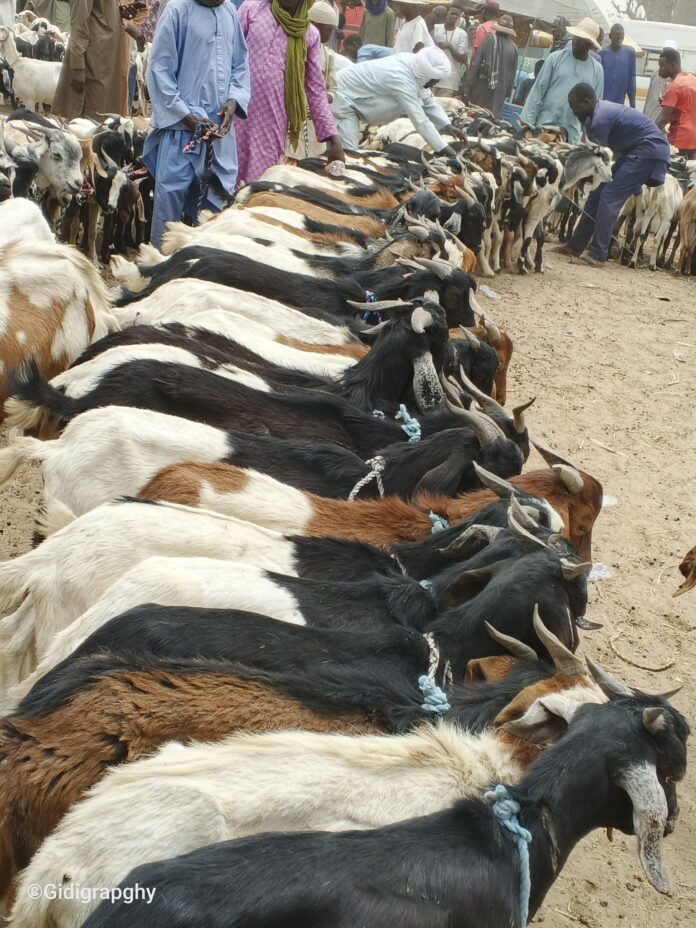By Abdullahi Inuwa
Tucked away in the northeastern part of Yobe State, near the border with Niger Republic, lies Jaji Maji — a once quiet town now roaring to life every week as one of northern Nigeria’s most dynamic livestock markets. Known far and wide for its sheer volume of trade, Jaji Maji Livestock Market has grown into a key economic engine, feeding not only local businesses but also boosting cross-border commerce across West Africaq⁰
Every Tuesday, buyers and sellers from across Nigeria and neighbouring countries—Niger, Chad, Cameroon, and even Mali—converge on the sprawling market. Goats, sheep, rams, camels, and cattle arrive in droves, often herded in on foot from remote settlements by Fulani herders and livestock dealers. The sheer diversity and quantity of livestock on display are a testament to the market’s size and growing regional reputation.
Aminu Garba, a livestock trader from Kano, called Jaji Maji “a goldmine in the desert.” According to him, “You can get the best quality cows here at a reasonable price, and the turnover is fast. Once you enter this market, you know business is guaranteed.”
Established more than 40 years ago, Jaji Maji Livestock Market has seen tremendous growth in recent years, thanks in part to state government investments in rural infrastructure and border-area trade. With improved roads, veterinary services, and expanded market facilities, it has become a magnet for commercial livestock activity and a major source of income for thousands of families in the region.
The Yobe State Government under Governor Mai Mala Buni has prioritized agriculture and livestock development as part of its post-insurgency recovery and economic revitalization efforts. As insecurity subsides and normalcy returns, markets like Jaji Maji are proving critical in rebuilding livelihoods and restoring confidence in the region’s economic future.
“We are focused on developing Jaji Maji into a modern agro-livestock trading hub,” said Yobe State Commissioner for Agriculture, Dr. Mairo Talba. “Our vision includes improved infrastructure, market sanitation, veterinary clinics, and digital livestock tracking to ensure safe and traceable trade.”
In addition to its economic impact, the market has cultural significance. It serves as a unifying point for diverse ethnic groups—Kanuri, Fulani, Hausa, Shuwa Arabs, and Tuareg—who engage not only in trade but also in social exchange, fostering peace and understanding.
Local community leaders also acknowledge the role the market plays in empowering women. “Many women are now involved in livestock sales, dairy products, and feed supply,” said Hajiya Ladi Abacha, a women’s cooperative leader.
Abdullahi Inuwa Social Commentator ainuwa303@gmail.com




